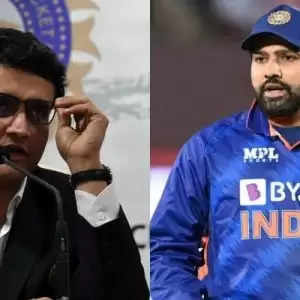Rohit Sharma Opened Up About Return Of Multi-Nation Series In White-Ball Cricket: From July 7 to 17, India will have played 6 white-ball matches against England, with really short gaps for players to recover – the second and third T20I were even played on consecutive days.
From July 22, India are scheduled to take on West Indies for 3 ODIs and 5 T20Is which will end on August 7, and there too, the last two T20Is will be played on consecutive days!
England are having a similarly tight schedule: after the 3rd ODI against India on July 17, they will host South Africa from July 19 for 3 ODIs and 3 T20Is, the last of which is slated for July 31. So England will have played 12 white-ball matches in a space of 25 days!

Rohit Sharma weighs on the tight scheduling in bilateral series
Both India and England were never at full strength – they hardly have been over the past couple of years – given their multi-format players have either suffered injuries or were rested.
India captain Rohit Sharma supported the idea of a return of multi-nation series such as triangular and quadrangular series – as it used to be a regular feature until about a decade ago and now have diminished or almost scrapped. Rohit pointed out that a multi-team series will provide an extra day or two for the players to get proper rest.
“I do think it is important but it can be managed in a better way for sure. The scheduling has to be done with some space as well. You have to play bilateral series. There was a time, when we were kids, I grew up, I watched a lot of tri-series or quadrangular series, but that has completely stopped. I think that can be a way forward so that there is enough time for a team to recover and get back,” Sharma said after India’s loss in the second ODI at Lord’s.

Sharma, who had missed the Edgbaston Test earlier, explained that players would want to be at their best in every game, but require an adequate amount of time to rest; he batted for scheduling that gives the players sufficient time away from the field to get rest.
“These all are high-pressure games that we play, whenever you represent your country, you want to come out with a lot of intensity.
“You do not want to compromise on that so of course, I do understand when we play the bilateral series, the scheduling, time between each game can be managed slightly better, not just from India’s perspective, but all boards,” he further added.

